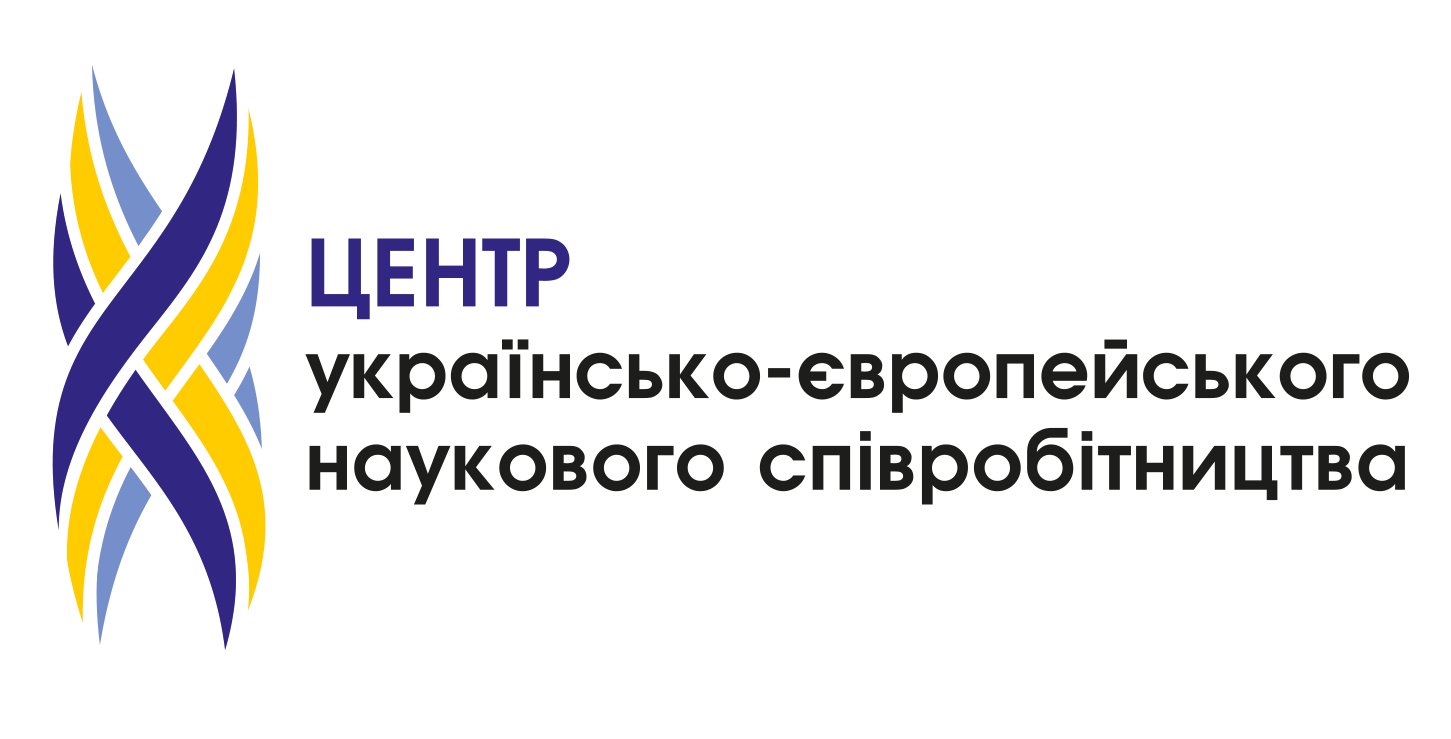Interview with Administration of Vilniaus kolegija / University of Applied Sciences represented by Nijole Zinkevičienė, Vice Rector for Research and Partnerships, Jolanta Preidienė, Head of International Relations Office, Erika Kubilienė, Head of Research Integrity Office
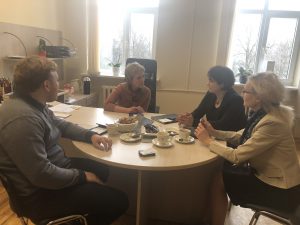 1. The Vilniaus kolegija / University of Applied Sciences presents itself as a flexible, progressive, and open to novelties higher education institution. Please, tell us about history of the establishment and development of your university.
1. The Vilniaus kolegija / University of Applied Sciences presents itself as a flexible, progressive, and open to novelties higher education institution. Please, tell us about history of the establishment and development of your university.
Vilniaus kolegija / University of Applied Sciences (Vilniaus kolegija / UAS) was established in 2000. Until the year 2004 the institution has been expanding its boundaries by merging the former higher schools and reorganising them into faculties. During that four-year period the number of students has increased from 3 to nearly 11 thousand. In 2004 – 2010 the structure and management of VIKO were improved, moreover in all the faculties the image of VIKO was shaped and every effort to standardize the study requirements was strained. During this period VIKO firmly anchored its position among the first of the top three most popular higher education institutions of Lithuania and in addition, many universities were left behind according to the admission results. VIKO participation in Lithuanian Higher Education Association of Joint Admission (LAMA BPO) together with other universities, which lasted from 2005, has been a serious challenge for the higher education institution existing for a short period of time. The international relations were rapidly developing. Lecturers and the administrative staff gained experience through the preparation and participation in the EU Structural Fund Projects. This successful activity has shortly been spotted. In 2007 the Knowledge Economy Forum of Lithuania acknowledged Vilniaus kolegija / University of Applied Sciences as the most progressive higher education institution “(…) that generates new ideas, encourages other institutions to follow its example likewise stimulates the development of society”. This was the first time when a higher education institution gained such a remarkable recognition. On that occasion the President of the Republic of Lithuania Valdas Adamkus delivered his speech in praise of Vilniaus kolegija/ University of Applied Sciences. The present raises even more complex challenges that are primarily related to the demographic “pit” in Lithuania and the outcomes of economic crisis. We had to adjust our activities to the complex conditions of Lithuanian economic and social development, furthermore we had to maintain the acquired level of quality as well as remain a reliable element in Lithuanian and European higher education area. This is certainly a daunting task, however, the community of Vilniaus kolegija/ University of Applied Sciences has never been searching for the easiest solutions. Under the guidance of strategic documents, we more rationally distribute and more efficiently use our intellectual resources and tangible assets as well as successfully implement the mission of Vilniaus kolegija/ Univertity of Applied Sciences.
2. Could you indicate the total current number of students at the University of Applied Sciences? Which specialities are the most popular among enrollees?
Total number of students at Vilniaus Kolegija / UAS is 6700. The most popular study programmes among enrollees are International Business in the Faculty of Business Management, Physiotherapy, General Care Nursing, and Hygienic and Decorative Cosmetology in the Faculty of Health Care, and Veterinary in the Faculty of Agrotechnologies.
3. What percentage of the total number do international students make up? How many students are from Ukraine? Please, characterise the students from Ukraine, do they have any special features that distinguish them from other international students?
International students make up to 2 % of the total number of students at Vilniaus kolegija / UAS (114 mobile + 33 full time). There are 5 students from Ukraine (1 exchange + 4 full time) at present. Students from Ukraine have some special features that distinguish them from other international students – Ukrainian students are more hardworking, trustful and motivated to study.
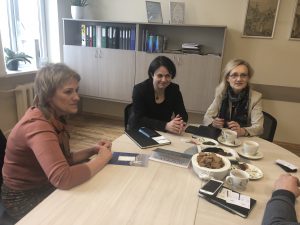 4. Please, describe the system of Lithuanian higher education institutions. For example, there is a prefix of “applied sciences” in the name of your university. What specialities do you offer, and what is the specificity of universities of applied sciences in general?
4. Please, describe the system of Lithuanian higher education institutions. For example, there is a prefix of “applied sciences” in the name of your university. What specialities do you offer, and what is the specificity of universities of applied sciences in general?
There are two types of higher education institutions in Lithuania:
• Universities, representing university sector of higher edcuation;
• Colleges of higher education, called „kolegija“ (higher education institution), Universities of Applied Sciences (UAS), representing college higher education sector.
Universities offer university level degree granting studies and award Bachelor’s, Master’s, Doctoral degrees. Universities of Applied Sciences offer college level degree granting studies and award Professional Bachelor’s degrees. Both universities and universities of applied sciences (UAS) can also offer non-degree granting studies.
Until 2000, higher education system was unitary. The binary system of higher education consisting of university sector and college sector was introduced in 2000. During the institutional reform, which started in 2000, a college higher education sector was gradually developed on the basis of advanced vocational education and training, which was vocationally oriented, and did not belong to the higher education system. The reform aimed to phase out advanced vocational education and to develop a college higher education sector. Under the reform the schools that were sufficiently qualified to provide college higher education were made into higher education colleges (University of Applied Science) or departments of such colleges.
Professional Bachelor degree is awarded after completion of college level (University of Applied Sciences) study programmes which are more oriented towards preparation for professional activity and applied research. Professional Bachelor’s degree programmes require completion of 180‑210 credits (4800‑5600 hours). After completion of the studies Professional Bachelor’s Diploma is awarded.
Vilniaus kolegija/University of Applied Sciences consists of 7 faculties, which offer 44 degree study programmes in the Lithuanian language and 8 degree study programmes taught in English. The mission of Vilniaus kolegija / University of Applied Sciences is to provide practice-oriented study programmes designed for students’ self-development to become specialists with the professional bachelor’s degree in health care, agricultural, natural, humanitarian, social and technological sciences and arts, who meet economic and social needs of Vilnius region and the entire Lithuania; to ensure a modern study process complying with the European standards and develop an effective cooperation with representatives from the business world; to develop students’ generic competences and civil values, necessary for VIKO graduates’ future work and further studies. (https://en.viko.lt/)
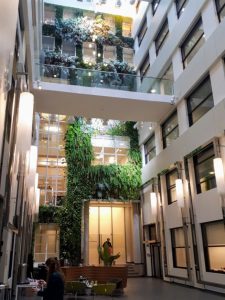 5. The University of Applied Sciences was rebranded. Could you specify the purpose of rebranding? What is the idea of the new logo? What does it symbolise?
5. The University of Applied Sciences was rebranded. Could you specify the purpose of rebranding? What is the idea of the new logo? What does it symbolise?
The logo of Vilniaus kolegija / University of Applied Sciences was created almost 20 years ago. Considering the fact that Vilniaus kolegija / UAS is one of the leading universities of applied sciences in Lithuania and listening to the voice of students, last year we started creating a new logo that would deeper reflect institutional values. The graphic designers, administrative staff and students got together and made mutual decision how we would like to be identified in the modern world.
We realized that once the logo is learned it is just noticed rather than studied and interpreted. That is why we decided to use our name “Vilniaus kolegija” abbreviation “VIKO” as it is a short and informative 4-letter abbreviation that is easily recognizable by youth, community and our partners. “VIKO” is part of many internal institutional structures as “VIKO SA” (Student Union), “VIKO bankas” (Simulation bank), etc.
Our new communication sign has been adopted by all 7 faculties with the same color palette. We are seeking for unified communication. New communication sign reflects our values: professional competence, social responsibility, and community’s spirit, modernity with respect to traditions, openness and flexibility. A letter “V” could be interpreted as a “Victory” symbol. Letters “o” and “k” as “okay”. It was also very important to have something from the main logo – that is the blue color.
The Green color symbolizes rebirth, prosperity, vitality, fresh growth, progress, wealth, and youthful, the Blue color reflects reliability, responsibility, an inner security, confidence, trustworthiness, and loyalty.
In terms of character of the logo, the VIKO part, with the sleek, overlapping colors, creates the feeling of lightness, the inscription “Vilniaus kolegija” is stricter, reflecting the stability and sustainability of the Vilniaus kolegija / University of Applied Sciences.
6. Does the University of Applied Sciences provide international students with free tuition? If it does, tell us about the opportunity in more details.
Vilniaus kolegija / University of Applied Sciences provides international students with free tuition. According to the Rector’s order, 10 best students from Ukraine and 10 best students from Georgia can apply for tuition free studies each year.
7. Does Vilnius have anything interesting for the student community from all over the world?
Vilnius, the capital of Lithuania, is very popular among young people from all over the world, Vilnius offers many different events, City life, and friendly, international atmosphere.
8. Are lecturers of your university active participants of international scientific events organized by higher education institutions of other European countries? Is it obligatory? are there minimum requirements for the number of reports for conferences, symposiums, roundtables?
As our institution is a member of many different European organizations, our staff has a big variety of opportunities to share their theoretical knowledge and practical experience, as well as the results of our applied research. Lecturers of Vilniaus kolegija / UAS are active participants of international scientific events organized by higher education institutions of other European countries. Participation in international scientific events is a part of lecturers’ annual workload, but there are no minimum requirements exactly for the number of reports at conferences, symposiums or roundtables.
10. Tell us more detailed about the academic workload of lecturers at your university: how many academic classes and working days per week?
The academic workload of teachers consists of 1520 hours per year. It comprises the contact and non-contact time with the students, the time for methodological, research (professional art), organizational, project activities. Contact hours (academic classes) should comprise no more than 50 percent of the whole academic workload. The average workload for academic classes is estimated to be 18 hours per working week (usually 5 or 6 days).
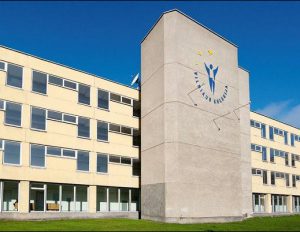 11. What is the minimum and maximum monthly salary of a lecturer at the University of Applied Sciences?
11. What is the minimum and maximum monthly salary of a lecturer at the University of Applied Sciences?
Monthly salary of a lecturer at the University of Applied Sciences is approximately 560 – 1100 Eur tax excluded, depending on the workload, qualification of lecturer, scientific degree, etc.
12. What do you think: does the Soviet past of the state have a negative impact on the general education process at the University of Applied Sciences and in Vilnius in general?
The Soviet past of the state was our reality, the past has shaped us. Now we’re focused on the future. Beating in the past is not valuable itself, unless you just learn the lessons and do not repeat mistakes. Nowadays it is important to keep on assuring the quality of studies and applied research, to promote social responsibility and sustainable development, to build effective partnerships, and, providing regional, national and international labor market with high quality specialists, to strive for modern world.

